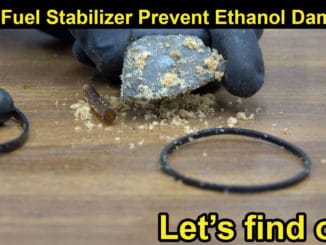
When it comes to preserving fuel for the long haul, everyone seems to have an opinion — and plenty of products claim to keep gasoline fresh for years. But how do they actually perform over time? In true Project Farm fashion, the only way to find out was through a long-term, hands-on experiment — one that stretched across five full years.
Todd takes viewers deep into the science of fuel preservation. The test compared some of the most popular fuel stabilizers on the market: STA-BIL, Star Tron, Yamalube, K100, SeaFoam, Marvel Mystery Oil, and a Fuel/2-Stroke Oil Premix, alongside untreated fuel as the control.
The 5-Year Testing Process
The first stage of the test lasted three years, during which the fuels were stored and periodically examined for signs of degradation. The focus was on three main performance areas:
- Freshness retention – Did the fuel still ignite and run properly after long storage?
- Corrosion prevention – How well did each product protect metal components from rust and pitting?
- Rubber preservation – Did the stabilizer prevent gaskets and seals from hardening and cracking?
After three years, the experimenter decided to push things even further by creating a new batch of treated fuel, which was then monitored for an additional 20 months — extending the total testing time to over five years.
Real-World Results
To put the findings to the test, the video includes a generator run test using fuel that had been sitting for 20 months. The results highlight which stabilizers truly preserved engine-starting performance and combustion quality — and which failed to deliver after prolonged storage.
The video also revisits a previous Project Farm test on headlight restoration kits, comparing their UV resistance after a year of outdoor exposure. The combination of both updates gives viewers a satisfying look at how long-term durability testing separates hype from real performance.
A True Independent Review
In keeping with Project Farm’s commitment to unbiased testing, every product and material in this experiment was purchased independently, with no sponsorship or outside funding. The creator’s attention to detail — and patience over half a decade — make this one of the most exhaustive fuel stabilizer tests ever conducted outside of a laboratory.
For anyone who stores fuel for lawn equipment, generators, motorcycles, or seasonal vehicles, this test offers clear, data-driven insights into which stabilizers actually protect your investment — and which are just snake oil in a bottle.


